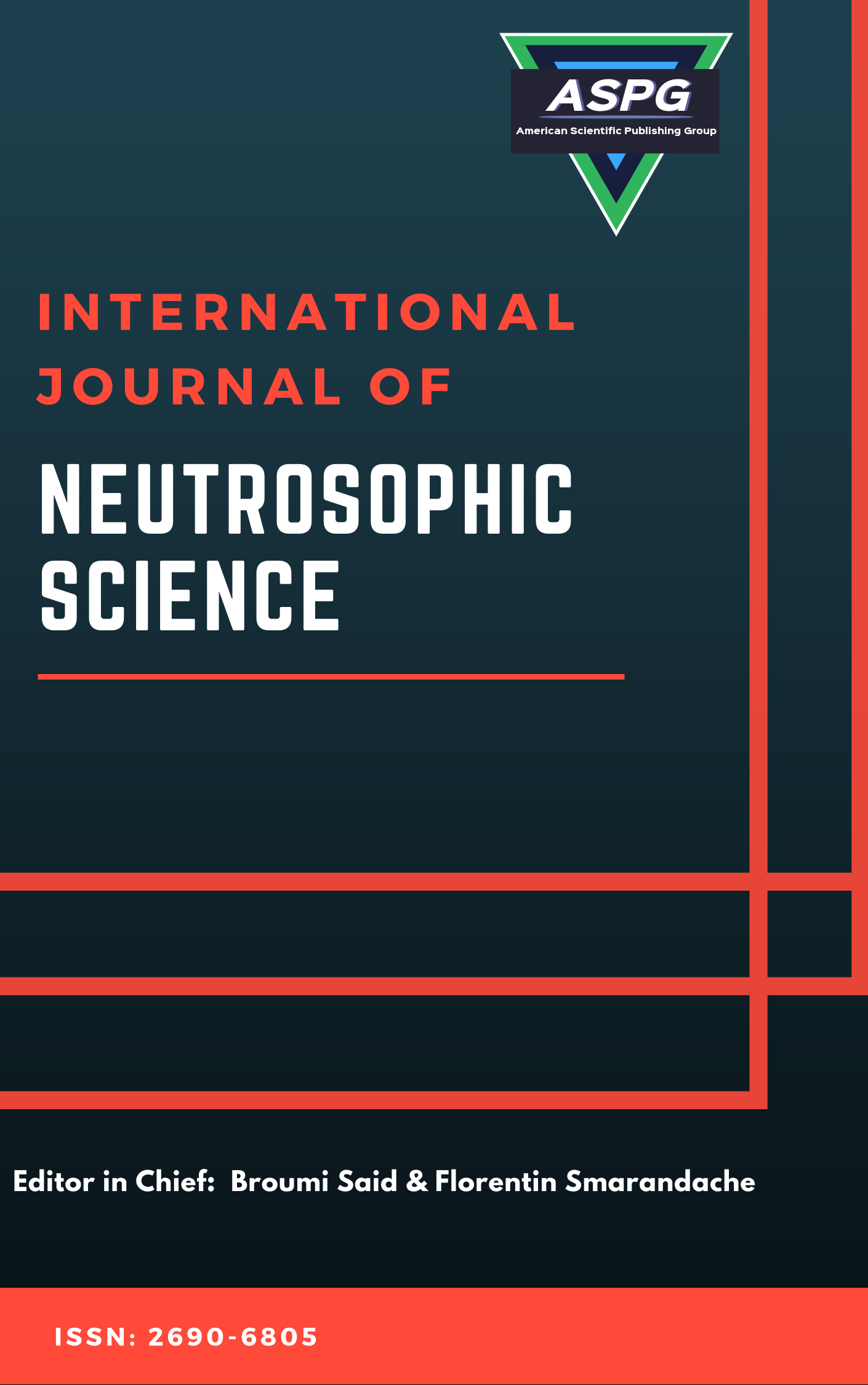

Volume 27 , Issue 1 , PP: 125-138, 2026 | Cite this article as | XML | Html | PDF | Full Length Article
Tanvir Mahmoud Hussein 1 * , Tojiyev Rakhmatilla 2 , Danish Ather 3 , Rubina Liyakat Khan 4 , Tiyas Sarkar 5 , Manik Rakhra 6
Doi: https://doi.org/10.54216/IJNS.270112
This paper proposes a novel hybrid framework that integrates Neutrosophic Logic with Artificial Intelligence (AI) for robust spatiotemporal modeling of urban land parcel transactions. The approach captures the uncertainty, inconsistency, and incompleteness often found in public land auction data through the application of neutrosophic triplets, defined by degrees of truth, indeterminacy, and falsity. Using longitudinal transaction records from Tashkent, the model transforms raw data into neutrosophic representations and feeds them into a Long Short-Term Memory (LSTM) network for forecasting. The enriched feature space enhances interpretability and prediction accuracy across administrative zones. Experimental evaluations demonstrate the superiority of the proposed Neutrosophic-AI model over conventional methods in terms of forecasting precision and uncertainty handling. This study offers a foundational contribution to neutrosophic-based urban analytics and supports transparent digital governance frameworks.
Neutrosophic logic , Artificial Intelligence , Spatiotemporal analysis , Land parcel transactions , E-AUKSION portal , Urban analytics , Tashkent , Digital governance
[1] A. A. Abduvaliev, A. A. Isadjanov, U. A. Dadabaev, and M. E. Balbaa, “Neutrosophic Framework for Analyzing Factors of Innovation in the Development of Uzbekistan: Features and Modern Tendencies,” Infinite Study, 2023.
[2] S. R. Kholmuminov, A. A. Isadjanov, and U. A. Dadabaev, “Application of Neutrosophic Logic in Evalu ating Stakeholder Preferences in Agricultural Development,” Journal of Agricultural and Environmental Ethics, vol. 37, no. 2, pp. 215-230, 2023.
[3] A. Vera, X. N. Lindo Quito, and P. A. Ortiz, “Utilizing Neutrosophic-TOPSIS for Assessing Qualitative Aspects in Social Media Discourse,” Journal of Social Computing, vol. 10, no. 1, pp. 45-58, 2024.
[4] A. Bramson and M. Mita, “Explicable Machine Learning Models Using Rich Geospatial Data,” in Proc. 2024 IEEE 48th Annu. Comput., Software, and Appl. Conf. (COMPSAC), pp. 2381–2386, 2024. https://doi.org/10.1109/COMPSAC61105.2024.00382
[5] R. K. Jana, I. Ghosh, and P. N. R. Kumar, “An explainable AI-enabled granular ensemble machine learning framework to demystify fertilizer price movements,” Journal of the Operational Research Society, vol. 75, pp. 1569–1586, 2023. https://doi.org/10.1080/01605682.2023.2260908
[6] E. Tepe and A. Safikhani, “Spatio-temporal modeling of parcel-level land-use changes using machine learning methods,” Sustainable Cities and Society, vol. 90, 104390, 2023.
[7] B. Huang, L. Zhang, and B. Wu, “Spatiotemporal analysis of rural–urban land conversion,” International Journal of Geographical Information Science, vol. 23, no. 3, pp. 379–398, 2009.
[8] E. Tepe and J.-M. Guldmann, “Spatio-temporal multinomial autologistic modeling of land-use change: A parcel-level approach,” Environment and Planning B: Urban Analytics and City Science, vol. 47, no. 3, pp. 473–488, 2020.
[9] W. Kong, J. Huang, L. Niu, S. Chen, J. Zhou, Z. Zhang, and S. Guo, “Innovative framework for identification and spatiotemporal dynamics analysis of industrial land at parcel scale with multidimensional attributes,” Cities, vol. 162, 105958, 2025.
[10] A. Leung, U. Lachapelle, and M. Burke, “Spatio-temporal analysis of Australia Post parcel locker use during the initial system growth phase in Queensland (2013–2017),” Journal of Transport Geography, vol. 110, 103634, 2023.
[11] E. Tepe and J.-M. Guldmann, “Spatial and temporal modeling of parcel-level land dynamics,” Computers, Environment and Urban Systems, vol. 64, pp. 204–214, 2017.